![[anchor]](../images/v/vx-gb_nbf.gif)
![[anchor]](../images/v/vx-gb_abf.gif)
![[anchor]](../images/v/vx-gb_nmm58.gif)
Flag of the Admiralty Board 1975–2003, UK;
Flag of the Admiralty Board, UK;
Flag of the National Maritime Museum, UK
Notes
a) Whilst other orientations are known, anchors are usually (but not invariably) illustrated
vertically with the ring uppermost, and:
b) In a traditional anchor (as it is generally seen on flags) the chief parts are the shank or main
section, the ring to which its cable or chain may be attached, the stock or cross piece below that
ring, the arms at the base and the flukes at each end of those arms.
![[example]](../images/v/vx-nl-zh-og.gif)
Flag of Oegstgeest, The Netherlands
2) In UK usage, now obsolete, the flag of the Board of Admiralty – the admiralty flag – but see note a) below (also fouled anchor).
![[Lord High Admiral]](../images/v/vx-gb~j2f.gif)
![[Lord High Admiral]](../images/v/vx-gb_a19c.gif)
![[Lord High Admiral]](../images/v/vx-gb_a20cv.gif)
Lord High Admiral
1685–1688, England; The Board of Admiralty
19th century, UK;
and as modified in 1929, UK
Notes
a) The Board of Admiralty was dissolved in 1964 with the office of Lord High Admiral
reverting to the crown, however, during the preceding two hundred and fifty years the role was most often
"in commission" and the anchor flag also flown by the Board.
b) The three masthead flags flown (since c. 1660) when the monarch is aboard a naval vessel are that
of the Lord High Admiral at the fore, the royal standard at the main and a union jack at the mizzen
(see also launching flags and
its second note following (also
foremast,
main
and mizzen).
![[Anchor flag]](../images/v/vx-vandefeld.jpg)
A Royal Visit to the Fleet 1672, William van de Veld (rmg.co.uk)
![[ancient example]](../images/f/fr-slys.gif)
![[modern example]](../images/f/fr-3b.gif)
![[English 1590 example]](../images/g/gb~tja2.gif)
France
Ancient, France Modern;
Ancient/Ship’s Ensign, English c1590
Please note with regard to 1) that before modern usage restricted the term, it could be (and was) employed to signify something not in the current style or mode.
![[ancient crown example]](../images/v/vx-pt-stsrg).gif)
![[ancient crown example]](../images/v/vx-pt-stsrg.gif)
Arms and Flag of Reguenga, Portugal
![[ancient ship]](../images/v/vx-ru-39kg.gif)
![[ancient ship]](../images/v/vx-hr-ri-ko.gif)
![[ancient ship]](../images/v/vx-pm-loc.gif)
Flag of Kaliningrad, Russia;
Flag of Kostrena, Croatia;
Local flag of Saint-Pierre-et-Miquelon, France
Notes
a) Before modern usage restricted the term "ancient", it could be (and was) employed to
signify something not in the current style or mode.
b) A vessel with oars but more than one mast should be blazoned "galley" – see
galley.
c) Single-masted Medieval sailing ships fall into a number of different categories of which two are
separately defined herein under cog 2) and
nef.
d) This term can (and sometimes does) include sailing vessels with more than one mast as illustrated
above – see caravel, carrack
and galleon.
![[andiron]](../images/v/vx-de-sulzfeld.gif)
![[andiron]](../images/v/vx-de-saal.gif)
![[andiron]](../images/v/vx-de-grossbardorf.gif)
Arms of
Sulzfeld (im Grabfeld),
Saal upon Saale
and Großbardorf,
Germany (Wikimedia)
Please note that Андреевский – Andreevskiĭ with alternative transliterations – is the Russian term for their naval ensign.
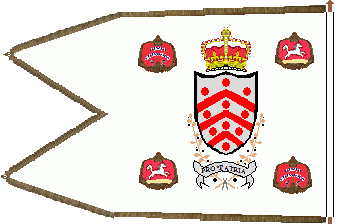
Guidon of the Royal Gloucestershire Yeomanry 1797, UK

.gif)

Flag of Covelo do Gerês, Portugal;
Arms of Sedielos, Portugal;
Flag of Moimenta da Serra e Vinhó, Portugal
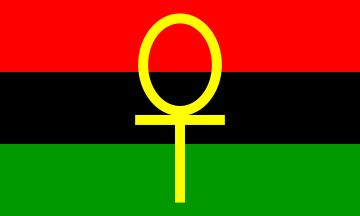
Flag used by the Music Group X Clan
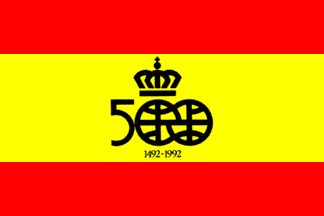
Commemorative Flag commemorating the 500th year of Spanish discoveries



Flag of Groß Twülpstedt, Germany;
Flag of Suraua, Switzerland;
Flag of Warnau, Germany

Flag of the Rulers of Tuscany, 1531–1737
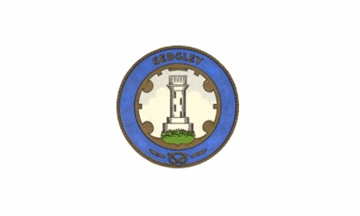
Flag of Sedgley, UK
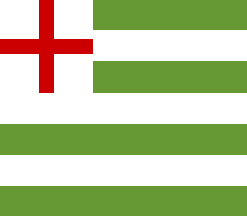
An Anshent/Ancient, English c1590

Code/Answering Pennant in the ICS
Please note, it is suggested that the alternative form was used in medieval manuscripts.



National Flag of Comoros;
Naval Ensign of Bolivia;
39 Star Flag of the United States 1839
Please note that the 39 star of the United States, for example (and illustrated above), displays a symbol in advance of any official authorization, whereas a “flag of pretence”, for example the national flag of Comoros or naval ensign of Bolivia, both show one more star than they have provinces under their control.
fl.gif)

ee.gif)
State Seal of Florida, US;
Flag of Yona, Guam;
Emblem of Estonia ca. 1940–1990
Please note that this term has its origins in a rejection of heraldic symbolism and of all things having a connection to royalty or the nobility, with prominent early examples stemming from the American War of Independence and the French Revolution.
![[antique crown]](../images/v/vx-ca-on-gu.gif)
![[antique crown]](../images/v/vx-ca-onwel.gif)
![[antique crown]](../images/v/vx-ca_nfgv1.gif)
Flag of Guelph, Canada; Flag of
Wellington, Canada; Flag of
Newfoundland, Canada 1862–1872
![[antique ship]](../images/v/vx-gb~lym.gif)
![[antique ship]](../images/v/vx-gb_lym.gif)
Ensign and Burgee of the Royal Lymington Yacht Club, UK
![[antlers]](../images/v/vx-hr)os-dz.gif)
![[antlers]](../images/v/vx-hr-os-dz.gif)
Arms and Flag of Draž, Croatia
![[antique crown]](../images/v/vx-pt-bgcqn.gif)
![[antique crown]](../images/v/vx-pt-bgcqn).gif)
![[antique crown]](../images/v/vx-pt-pvlfe.gif)
Flag and Arms of Quintanilha, Portugal;
Flag of Ferreiros, Portugal
![[appointment flag example]](../images/v/vx-milatuk.gif)
![[appointment flag example]](../images/v/vx-gb^raf-3.gif)
![[appointment flag example]](../images/v/vx-gb^raf-1.gif)
Military Attaché, UK (Graham Bartram);
RAF Station Commander, UK;
RAF Members of the Air Force Board, UK

![[Russian ensign]](../images/v/vx-ru~.gif)

![[antlered]](../images/v/vx-ch-ar004.gif)
![[antlered]](../images/v/vx-gb-e-dac-coa.gif)